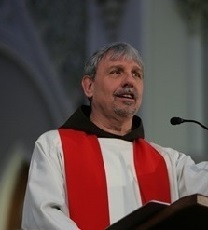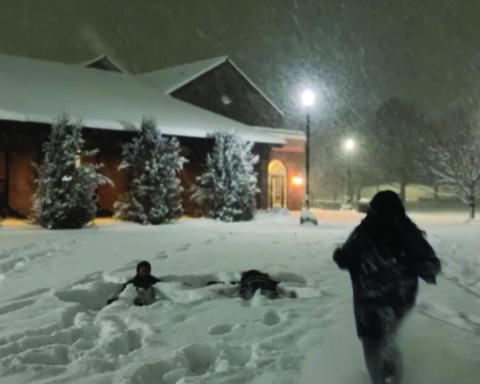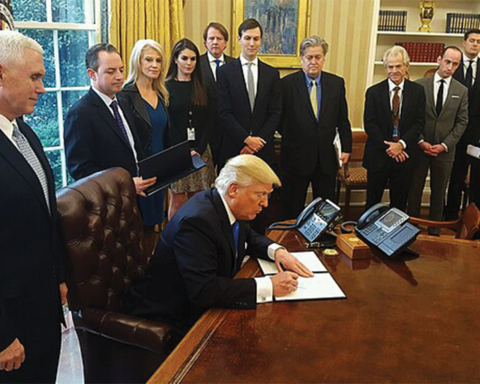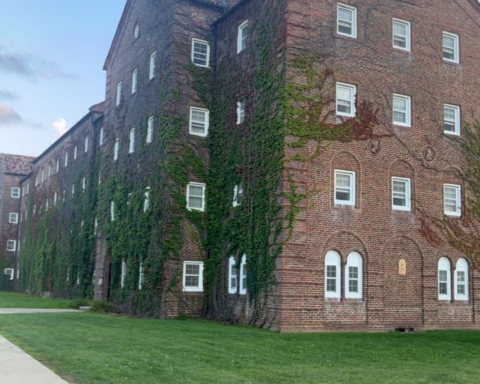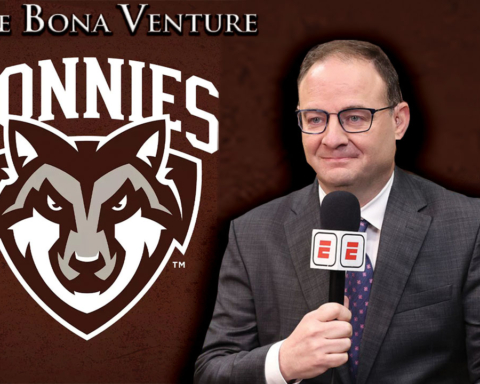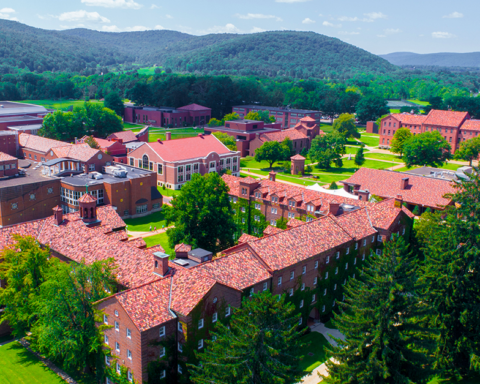By Lian Bunny
News Editor
“Then did the idea begin to break upon my mind…that I had been kidnapped. But that I thought was incredible. There must have been some misapprehension – some unfortunate mistake…The more I contemplated my situation, however, the more I became confirmed in my suspicions…I felt there was no trust or mercy in unfeeling man; and commending myself to the God of the oppressed, I bowed my head upon my fettered hands, and wept most bitterly” (Twelve Years a Slave).
A young woman from the Buffalo area could have spoken Solomon Northup’s words just as easily, said Father David Couturier, O.F.M. Cap., the dean of St. Bonaventure’s School of Franciscan Studies.
“[Amber] too was kidnapped on a New York street, beaten and abused by handlers who forced her by threats of violence into the sex trade,” Father David said. “They plied her with drugs, set up her trysts, took all her money and charged her for rent, food and the drugs she became addicted to. Her debt to her handlers ballooned causing them to increase the men she had to have sex with.”
Father David used Amber’s story to begin his talk, titled, “Slave Labor and Consumerism: A Franciscan Perspective,” which he delivered on Thursday, Feb. 5 at St. Ignatius Church in Manhattan.
“[Amber] said to remind people that men, women and children in this situation do not choose this hell,” Father David said. “They find themselves in a desperate situation and need individuals and groups to intervene, to make resources available, so that they can find the escape to health. We have to find a way to recognize the problem and that we are human beings who need help.”
After leaping from a moving van to escape her captures, Amber screamed at the top of her lungs. No one noticed.
She went to shelters and emergency rooms. She said no one knew what to do or how to help. After living on the street for a month, Amber finally found a rehab center that would take her.
“Amber’s story is replicated thousands of times a day, not just in the big cities of America, but in the suburbs and small towns of this great country,” Father David said. “Slavery is widespread and growing all across America and all across the world.”
Father David also discussed the other side of human trafficking: Some large United States companies with subsidiaries and subcontractors use men, women and children as human slaves around the world to boost productivity. The workers are underpaid and live in dismal conditions.
Oftentimes major companies are unwittingly involved in human trafficking, Father David said. The international problem has been recognized by some large corporations for about 14 years, but there are more slave trades today than in the 18th and 19th centuries.
Christian Marrero, a sophomore international studies and political science double major, believes globalization enables this increase in slave trades.
“In today’s day and age, ideas, customs and other standards of living can be spread across the world in the blink of an eye,” Marrero said. “Unfortunately, awful practices like human trafficking and slave trades now have the ability to network themselves just as fast. So, the prevalence remains higher than in the 18th and 19th century due to the fast communication that globalization has brought to the table. Also, the increase in human population and the global economy directly correlates to the issue of international slave trade.”
Father David also said there is legislation before the House of Representatives that would require companies to eliminate human trafficking from their businesses by auditing their practices. It has reached Congress and gotten nowhere for at least five years.
“It’s time to help our companies to do the right thing,” Father David said.
Father David first became involved with the issue of human trafficking in the mid-1990s when he became president of Franciscans International, a United Nation’s advocacy group. He worked with human rights issues, human trafficking being one of them; he has continued to be involved with the issue since.
In order to educate people on human trafficking in Olean area, Father David hopes to partner with P.A.T.H., Inc. (People Against Trafficking Humans). The organization is dedicated to fostering communication and cooperation between local, national and international groups that work against human trafficking.
Also in the works is Father David’s partnership with the Franciscan Center for Social Concern. He wants to speak, write and acquire groups on campus to spread awareness on the issue of human trafficking.
Marrero said students need to know they can help.
“By getting educated on the issue, it’s easier to put things into perspective, almost as if you’re expanding your world view,” Marrero said. “Public awareness should be a major priority, because if more people begin to realize how large the issue is, more action will follow. Secondly, there are now ways to track what you’re consuming to see if there are links to the slavery chain. This can disrupt the trafficking funding, making it harder for them to get an economic grasp on it all.”
Father David hopes the discussion will spark action.
“We are part and parcel of and indeed willing participants in a vast network of production, marketing, distribution and consumption of goods that crisscross boundaries and borders each and every day,” Father David said. “We are players in today’s modern economic schemes. The question we need to ask ourselves is- ‘how do we begin to see ourselves as ethical consumers?’”

